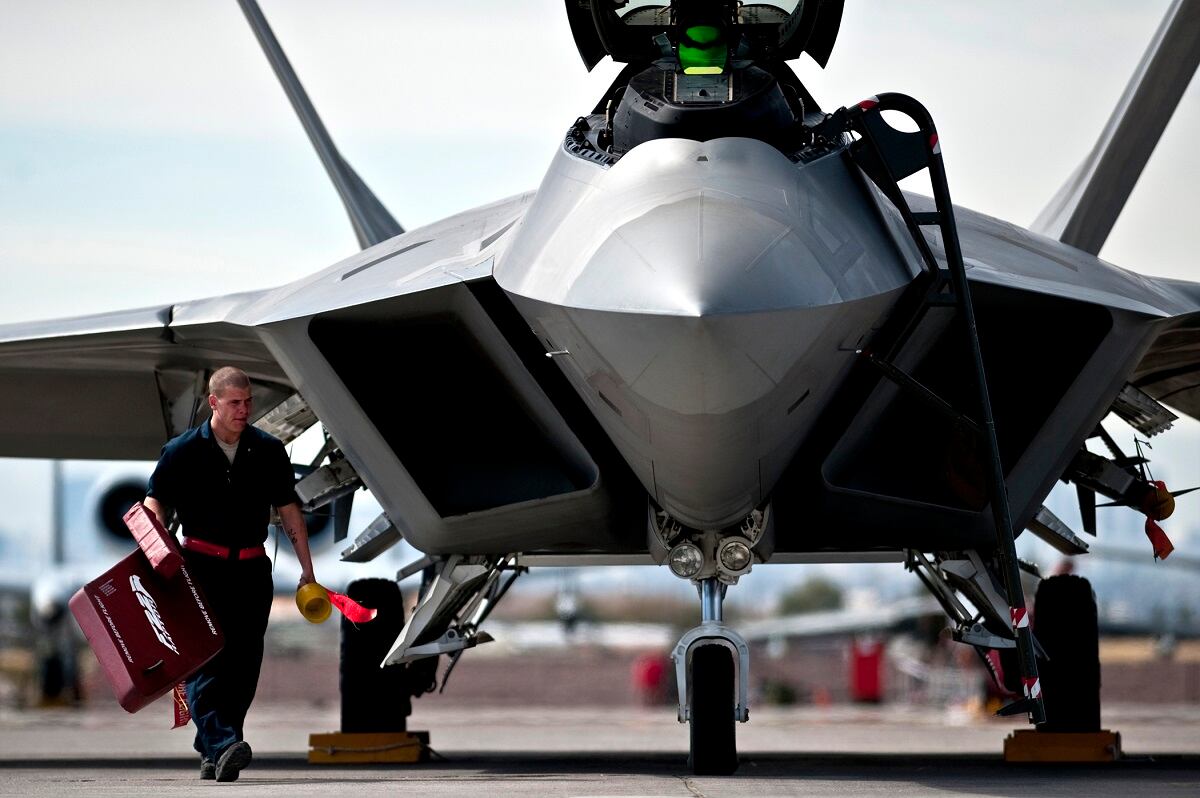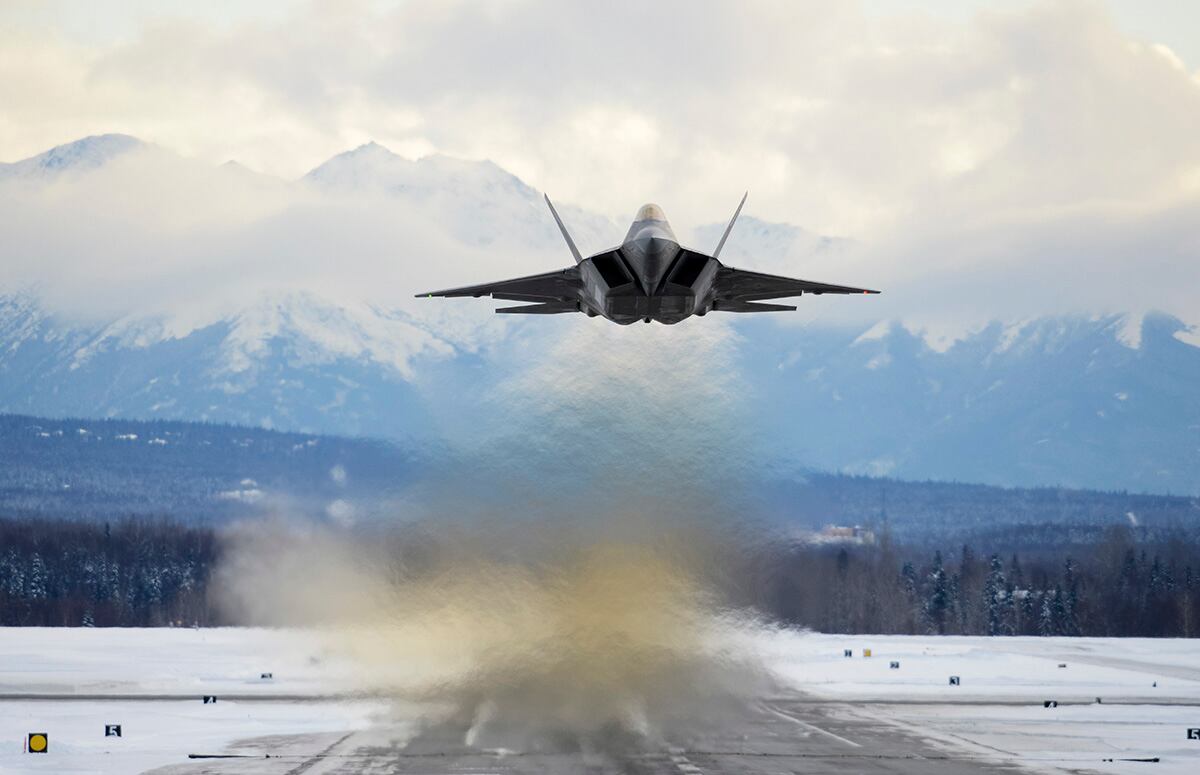WASHINGTON ― The U.S. Air Force ineffectively managed the stealthy F-22 Raptor’s modernization program, putting America’s air superiority at risk, the DoD Inspector General found in a new report.
The F-22 program office failed to generate an appropriate contracting strategy, which led to delays and a final product that may not deliver “modernized capabilities necessary to sustain air superiority against rapidly evolving U.S. adversaries,” according to the report published Monday.
Reviewing the program office’s implementation of Scaled Agile Framework (SAFe), a software development method that divides large projects into smaller portions to develop software in shorter time periods for one final product, DoDIG found the method resulted in the identification of multiple deficiencies late in development. The deficiencies required additional software upgrades, resulting in modernization schedule delays.
RELATED

DoDIG found that because the program office did not update its contracting strategy for SAFe implementation, officials were unable to identify the best strategy to incentivize contractors.
But the program office was not the only entity at fault. The offices of the Undersecretary of Defense for Acquisitions, Technology and Logistics and the Assistant Secretary of the Air Force, Acquisition, both failed to issue policy for implementing agile software development methods on weapon systems acquisitions, according to the agency.
The F-22 modernization program was divided into 10 separate but interrelated programs, ranging from improvements to radar and communication technology, electronic protection and resiliency to a new helmet mounted display and cuing system. Early delays “in one program can have a cascading effect on follow-on modernization programs,” according to the report.
So what can the program office and AT&L do to fix these problems?
RELATED

The report advises AT&L to review and revise acquisition guidance for the implementation of agile software development methods for programs that include hardware and software. The report also recommends the office compile these lessons and share them with other DoD programs.
For the Air Force, the report recommends the program office craft a clear contracting strategy to best incentivize contractors prior to awarding orders for the next step in the modernization program. With a clear strategy, the office should be able to decrease delays and ensure the system delivered meets the requirements needed to sustain U.S. air superiority, according to the DoDIG.
Daniel Cebul is an editorial fellow and general assignments writer for Defense News, C4ISRNET, Fifth Domain and Federal Times.





